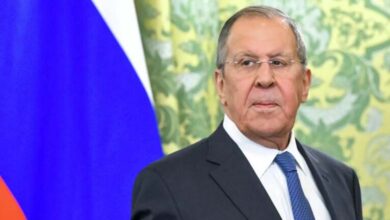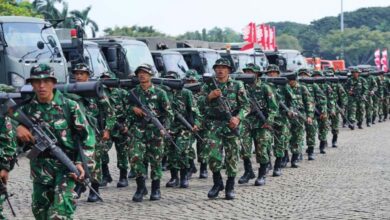Iraqi Militias Threaten Devastating Response if Israel Assassinates al-Sistani
The spokesman for 'Kata’ib Sayyid al-Shuhada' downplays the seriousness of threats against al-Sistani, describing them as psychological warfare propaganda.

Iraqi militias have warned Israel against any attempt to assassinate Grand Ayatollah Ali al-Sistani, Iraq’s highest Shiite religious authority, threatening devastating retaliation. This follows a broadcast by an Israeli right-wing channel supporting Prime Minister Benjamin Netanyahu, which featured a photo of al-Sistani among a list of potential targets, including leaders of Hezbollah, Hamas, and the Houthis.
Kazem al-Fartousi, the spokesman for Kata’ib Sayyid al-Shuhada, one of the most prominent Shiite factions backed by Iran, told Shafaq News, “The religious authority is not something to be called a red line, it is above all such lines and above all calculations and titles. It is sacred and untouchable.”
-
Iraqi Factions Shell Israel: A New Offensive after the Golani “Breach”
-
In Case of an Israeli Attack: Source Discusses Iran’s Plan and Target Bank
He warned that “any foolish action by the Zionist entity against the religious authority means we will engage in a long and devastating war that will only end with the elimination of Israel.”
Israeli sources confirmed that senior officials have called for strikes in Iraq to stop the drone and ballistic missile attacks launched by the militias.
On Friday, the Israeli army announced that two soldiers were killed, and 24 were injured, including two seriously, following an attack by drones from Iraq on northern Israel, marking the first such incident.
-
Iranian Missiles on Israel: Launch and Interception Costs
-
Hezbollah Engages in Violent Clashes with Israeli Army near Border
Al-Fartousi added, “Iraq has been at war with Israel since 1948, and nothing has ended this state of war—no international agreement, no truce, no UN resolution. Therefore, Israel will not stop targeting Iraq.”
He continued, “Israeli attacks on Iraq are recurring, and that’s why we are in a state of war; there is no need to declare war against this usurping entity.”
However, al-Fartousi downplayed the seriousness of the threats against al-Sistani, describing them as part of a psychological warfare campaign against resistance factions.
-
Iran’s Attack on Israel: “A Gamble” or “A Trap”?
-
How did Iranian missiles breach Israel’s “Dome”? 4 Reasons
He emphasized, “Israeli threats and rhetoric are chaotic, and this supposed intention to target al-Sistani is merely an attempt to exert pressure internally in Iraq, aiming to intimidate and exaggerate the response.”
Al-Sistani’s image appeared on Israel’s Channel 14 alongside figures like Abdul Malik al-Houthi, Naïm Qassem, Hezbollah’s deputy secretary-general, Yahya Sinwar, Hamas’s political bureau chief, Ismail Qaani, commander of the Quds Force of Iran’s Revolutionary Guards, and Iran’s supreme leader Ali Khamenei. A “target” mark was placed on the head of each of these leaders, but the channel did not explain why al-Sistani was included in this assassination list. The images were broadcast during a segment on Israel’s potential retaliation for the missile attack launched by Iran on Israel the previous Tuesday.
-
Reverse Migration from Lebanon Amid Israeli Escalation
-
Gray Morning in Beirut… and Israel Continues to Bomb the Suburbs
The Iraqi government condemned “in the strongest terms” any attack on the supreme religious authority.
In a statement, it called on “all international and global forums to reject and denounce any action that targets the sentiments of Muslims worldwide,” warning that such attempts pose a real threat to international security and peace.
-
Iran’s “Recruitment” of an Israeli Businessman to “Assassinate Netanyahu”: The Full Story
-
Heaviest escalation between Hezbollah and Israel puts Lebanon on the brink of war
Iraq’s presidency also condemned “in the strongest terms the insult to the supreme religious authority in Iraq and the world by the media of the occupying entity.” It added, “We reject such offenses against religious authority and affirm the necessity of respecting the sanctities of all religions and sects, whether Islamic or not. This blatant offense will lead to further danger and violence, and will expose the region to even more conflict.”
Al-Sistani, born in 1930, is a religious authority for the Twelver Shiite Muslims and resides in Najaf, Iraq, a city that hosts the main religious schools known as the “Hawza of Najaf.” He is one of the most influential figures in the country due to his religious authority.












